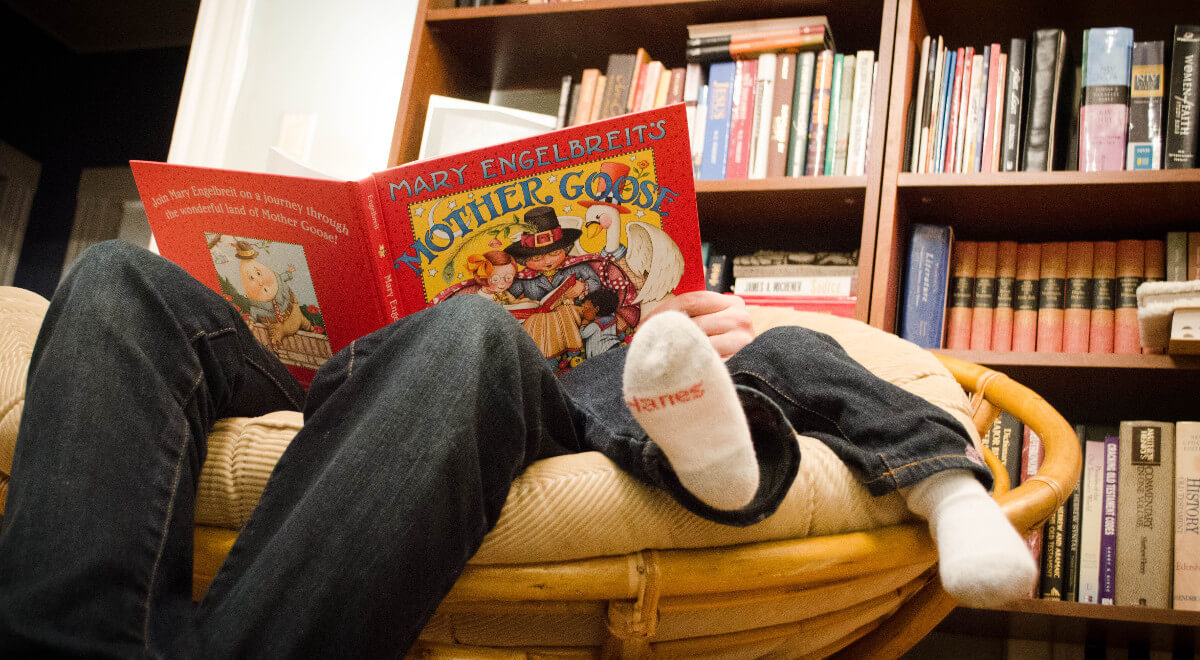Throughout the ancient hunter societies… and throughout the hunter-gatherer societies that followed them, and the subsequent agricultural and craft societies, fathers and sons worked and lived together. As late as 1900 in the United States about ninety percent of fathers were engaged in agriculture. In all these societies the son characteristically saw his father working at all times of the day and all seasons of the year.
When the son no longer sees that, what happens? After thirty years of working with young German men, as fatherless in their industrial society as young American men today, Alexander Mitscherlich… developed a metaphor: a hole appears in the son’s psyche…
We know of rare cases in which the father takes sons or daughters into his factory, judge’s chambers, used-car lot, or insurance building, and those efforts at teaching do reap some of the rewards of teaching in craft cultures. But in most families today, the sons and daughters receive, when the father returns home at six, only his disposition, or his temperament, which is usually irritable and remote… Fathers in earlier times could often break through their own humanly inadequate temperaments by teaching rope-making, fishing, posthole digging, grain cutting, drumming, harness making, animal care, even singing and storytelling. That teaching sweetened the effect of the temperament…
[T]he father as a living force in the home disappeared when those forces demanding industry sent him on various railroads out of his various villages… When a father now sits down at the table, he seems weak and insignificant and we all sense that fathers no longer fill as large a space in the room as nineteenth-century fathers did.
Robert Bly argues in Iron John that the diminishment of the father’s role in family life is destructive to both daughters and sons, but particularly to the son. With his principal image of manliness reduced to a half-stranger whose regular appearances every evening do little to impact the real life of the family, the son is left with terrible deficiency: “How does he imagine his own life as a man?”
Bly suggests this absence leads to two different types of men. The first “fall into a fearful hopelessness, having fully accepted the generic, diminished idea of father. ‘I am the son of defective male material, and I’ll probably be the same as he is.'” The second type become what Bly calls “ascenders,” striving with a hint of mania to redeem a maleness they do not really know. “The ascensionist son is flying away from the father, not towards him. The son, by ascending into the light, rising higher on the corporate ladder and achieving enlightenment, to some extent redeems the father’s name… Society without the father produces these birdlike men, so intense, so charming, so open to addiction, so sincere, as those great bays of the Hellespont produced the cranes Homer noticed that flew in millions toward the sun.”
What can be done to try to cure this father-deficiency? Well, first we must understand the problem, which goes well beyond mere lack of time spent with the father. After all, throughout history fathers have been busy, off hunting, or farming, or in the shop. So while the quantity of time spent with the father is certainly important, more important are the qualities of the father which are on display during that time.
In the modern family, the competencies of the father are almost entirely centered in a workplace that remains utterly opaque to his children. His experiences, his skills, his struggles, failures, and victories, and the respect of his associates are all hidden from his family.
A few weeks ago, while spending the night at my father’s house I could not help overhearing him leading a conference call in the next room. As I half-listened to him confidently directing colleagues on the other side of the globe, I was struck by the fact that my father is, in fact, quite good at what he does. It’s not that I hadn’t known that before, but the intensity with which I realized it while actually listening to him conduct business – something I’d never done before – was actually quite startling.
Instead of observing their father’s competencies, children are usually treated to a view of him at his most limited, treading more-or-less awkwardly in a realm in which the mother is the expert. (Generalizing to the family structure which remains most common in America, of course.) She knows where things are, what must be done, and how to do it, and, through no fault of her own, quite outshines the father in her command of most domestic situations. The man who might be capable of programming supercomputers, commanding battalions of soldiers, or performing lifesaving operations is reduced to hollering, “Honey, do I need to cover this dish when I put it in the microwave?”
A part of the solution to this deficiency can be found in introducing children to their father’s work, taking them, in Bly’s words, “into his factory, judge’s chambers, used-car lot, or insurance building.” The difficulty, of course, is that many jobs just don’t lend themselves to observation, particularly by children with limited attention spans. Today, I could appreciate my father’s teleconference, but try to sit me down to listen to a lengthy meeting or analyze a spreadsheet back when I was ten, and I probably would have called Social Services. With the exception of a fortunate few, the average worker today faces a similar dilemma. What child would be excited to learn about C++ functions or the intricacies of actuarial calculation?
That being said, the typical office worker should not assume his children would not benefit from some exposure to his work. Seeing where Daddy works and observing the respect of coworkers is not insignificant for a young boy or girl. However, today’s worker usually needs to do more than simply exposing his children to his working environment. This is one of the reasons why I believe it is so valuable for men to cultivate handyman or outdoor skills.
The man who can change his car’s oil, fix a leaky faucet, put up a shed, skin a deer, or gentle a horse has a precious opportunity to display the competence and confidence that his children, and particularly his sons, have such a deep need to experience. There are other venues for displaying ability, of course: through the arts, or community leadership, or technological prowess for example. However, few things can beat simple manual skill to interest and impress children of all ages. (I still chuckle at the memory of two small children standing wide-eyed and on tip-toes next to the bathtub in a friend’s house while I simply changed a showerhead.) Anyone who has observed a little boy trailing along after his father, plastic tools in hand and ready to “help,” knows that herein lies a powerful avenue to a child’s psyche.
Whatever avenue one chooses – and it should be unique to each man and his interests, family, and work – the structure of the modern world means that today’s “hidden” fathers must put extra thought and extra effort into allowing their children to experience a maleness they can respect, appreciate, and, in the case of sons, emulate.



